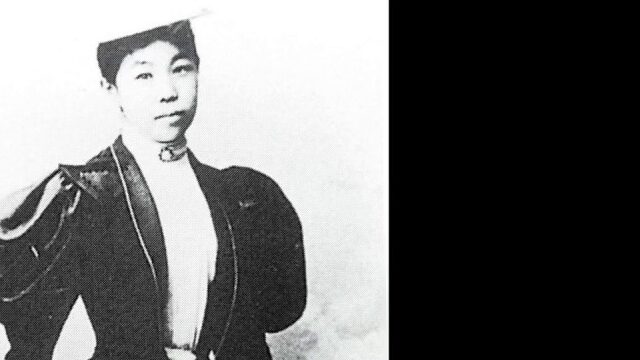The Japanese version of this blog entry can be found here. https://musicalmakiko.com/books/10130
I first came across the name of Nobu Kōda about two decades ago, in an essay by Hiroko Nakamura. It outlined Nobu’s life as the first musician to ever study music abroad at the New England Conservatory in 1889, and then in Vienna’s Konservatorium der Gesellshaft der Musikfreunde for five years after that. The essay portrayed her in somewhat of a sentimental tone. After her triumphant return in 1995, she became somewhat of a an outcast with the media and the public criticizing her for her high earnings, the way she dressed, this and that. She had become a Cassandra – the cursed character in Greek mythology who has the ability to foresee the future but no one believes her – as an expert in Western culture when only few in Japan had ever even seen a Westerner.
Her story left enough of an impression that I remembered her name – unusual for me! But I am embarrassed to admit that my curiosity stopped there. Was it my lack of musical curiosity, or internalized racism/misogyny, that led to my never having sought out her music until now?
And so, why now?
During the pandemic, BLM movement, and the subsequent momentum for DEI (Diversity, Equity and Inclusion) led to many musicians programming at least one piece written by a BIPOC and/or a woman. For the record, I do not like programming BIPOC and/or female composers just as an alibi. In fact, the retrospect coverup might prevent us from really understanding how things were for women and ethnic minorities when much of our core repertoires were being composed. However, when my violinist asked me if I knew of a piece for the piano and violin by a Japanese composer, I was struck by the fact that I did not know even a single one off the top of my head. So, I Googled “Japanese composer, violin, piano” and this was the first to come up.

Honestly, I was astonished.
This is by Nobu Koda? The Japanese woman, born only a dozen years after Japan started international communications and commerce? She sounds like…Beethoven!?
Born exactly a hundred years after Beethoven, the only thing I can criticize her sonata is for its anachronism. Otherwise, her compositional craft, understanding of the sonata form and Germanic style, instrumentation, harmonic progression, the contrast between the sections, melodies…it’s a meticulous piece of composition with high artistic integrity.
…I want to play it…!
Furthermore…
Aya Kōda, one of my favorite Japanese authors was Nobu’s niece! I had known them both for decades without connecting the dots between their last names. My favorite short story by Aya consists almost exclusively of a description of soundscape by the protagonist, a retired chef on his deathbed, listening to his younger wife cook for him, psychoanalyzing her through what he hears. Perhaps Aya’s awareness of, and the poetic description of the aural input was her aunt’s influence! And Aya’s father, Nobu’s brother, was Rohan Kōda, also a literary giant with formidable influence on the following generations of Japanese writers.

This would make for an amazing production of reading and music!
Another piece I would have on the program would be Clara Schumann’s Three Romances, written on the very month that Black Ships paid an unwelcomed surprise visit to Uraga Port in Japan, in July, 1853, demanding that they consider abandoning their strict rejection of all trades and communications with the foreigners.
I am now in search of prospective presenters, venues, collaborators, funders, etc. for a program of music and reading of the Kōdas! Please let me know if you, or someone you know, might be interested!
Pingback: 演奏道中記2.8:音楽文学:幸田延・露伴・文 - "Dr. Pianist" 平田真希子 DMA
Very informative piece! What beautiful music! I closed my eyes and let it carry me above the storm.
Perhaps, I will stay there…
Thank you Makiko-San!
Manuel…yes, music can lift us at!
I added another video to this post since you first read the pot – I hope you will enjoy this one as well 🙂
Makiko
Makiko,
I love this last piece! The music is soothing to a troubled soul. You are exquisite here!
Manuel
Thank you so much, Manuel! It means a lot to me to know that the music reached your heart.
Makiko